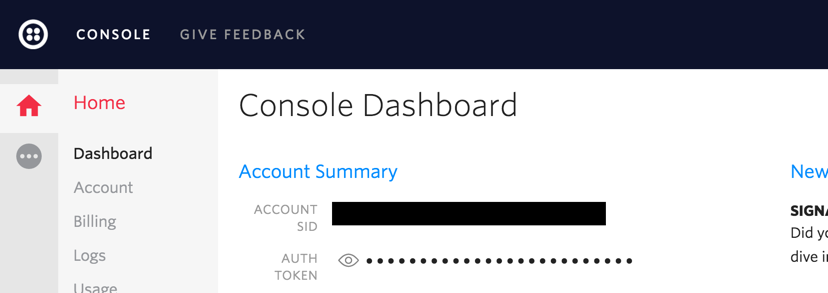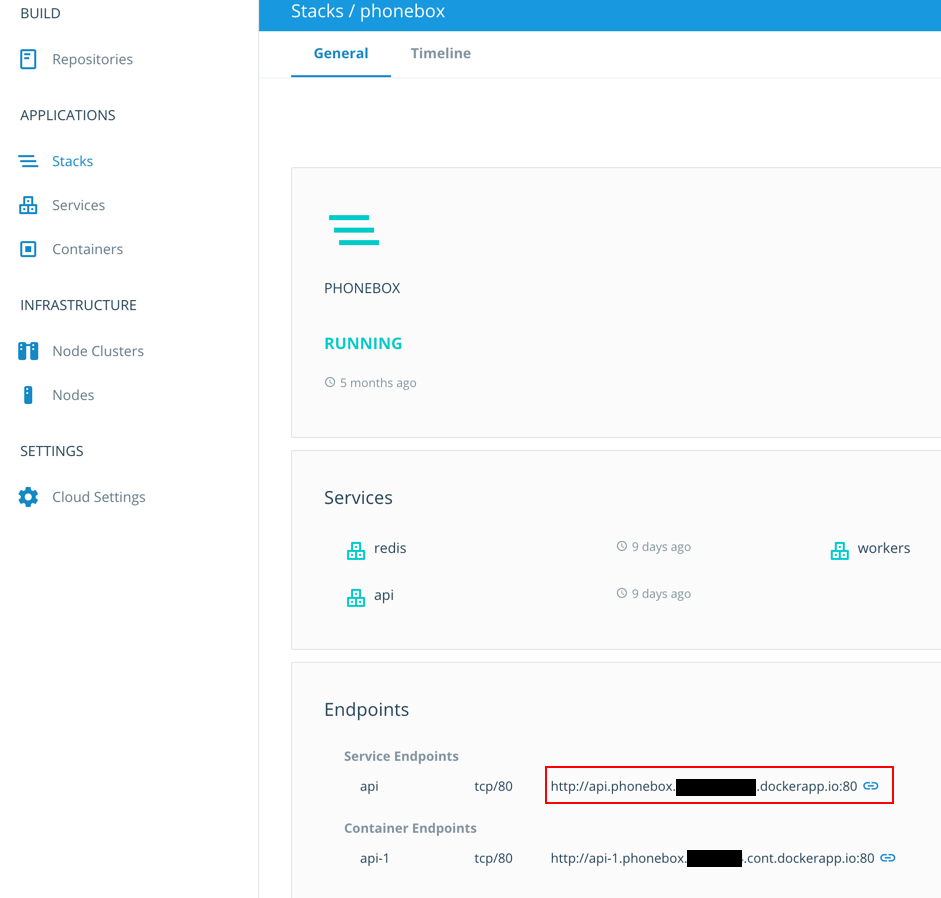NOTE:
Currently Docker Cloud requires you to be logged in before clicking the above Deploy to Cloud button, you will get a 404 otherwise.
#phonebox
Phonebox allows you to manage on call engineer rotas effectivley and easily. It will call engineers when issues arise within your application.
Create up a Docker Cloud account if you don't already have one and link a provider and provision your relevant node cluster and nodes. If you don't already use Docker Cloud then you won't need much in your cluster to run phonebox.
Getting Started with Docker Cloud
Second thing to create is a Twilio account and get the following details so that you can set the relevant environment variables when deploying to Docker Cloud.
- Account SID
- Auth Token
- Purchased Registered Phone Number
You can simply use Docker Cloud to get up and running with which ever provider you currently are using in your organisation. Docker Cloud was chosen for this reason. You just need to link you account with Docker Cloud, whilst logged in click the "Deploy to Cloud" button at the top of the README.
In the Stacks / Wizard populate the following ENV variables:
TWILIO_SID= Twilio Account SID
TWILIO_TOKEN= Twilio Auth Token
TWILIO_FROM_NUMBER= Twilio, Registered Phone Number in Account
Thats it!
Currently to manage the rotas you just need to update the rota.json file and re-depoly the workers.
By default it will phone and text message people within the rota.
The following list will expand as more and more hooks / ingress workers are created to support how alerts are texted and spoken over the phone.
The base url is always the api in your Docker Cloud stack e.g. http://api.phonebox.123456abc.svc.dockerapp.io:
You can setup in your alerts of New Relic a custom webhook and add the relevant base url with the following path:
http://api.phonebox.[your_uid].svc.dockerapp.io/ingress/newrelic



